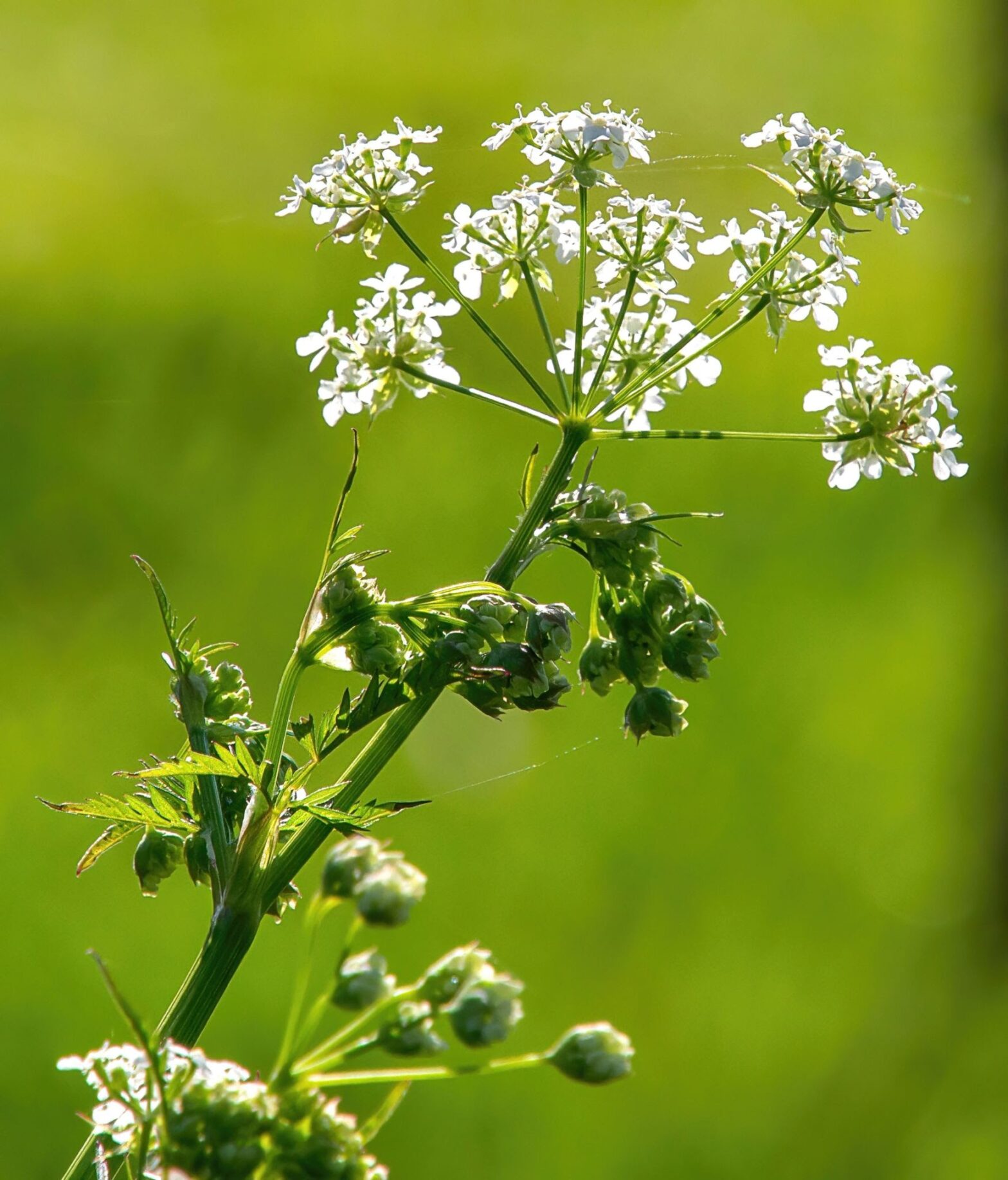Conium Maculatum, commonly referred to as Hemlock or poison hemlock, holds a unique place in both historical and homeopathic contexts. Known for its infamous role as the poison that led to the death of Socrates, Conium Maculatum has evolved into a potent therapeutic agent in homeopathy. This remedy is indicated for a spectrum of conditions encompassing paralysis, rigidity, glandular abnormalities, and manifestations arising from suppressed sexual desires.

Individuals requiring Conium Maculatum tend to exhibit aversions to light, salt, coffee, and sour substances, often finding wine or milk disagreeable. Notably, physical rigidity and slowness are aggravated upon initial movement but gradually ameliorate with continuous motion.
Geography & Botany:
Conium Maculatum is a biennial plant species belonging to the Apiaceae family. It is indigenous to Europe and North Africa, with widespread dissemination across temperate regions. This botanical entity thrives in diverse habitats, ranging from meadows and fields to waste grounds and along roadsides. The plant exhibits a characteristic erect growth pattern, reaching a height of approximately 1 to 2 meters during its second year of growth. Its distinctive foliage comprises compound leaves with finely serrated margins, imparting a feathery appearance. Notably, the plant bears umbrella-like inflorescences composed of small, white flowers, which contribute to its aesthetic allure. The presence of purple-brown spots on the stem is a prominent visual identifier, facilitating easy recognition.
Mental and emotional symptoms associated with Conium Maculatum manifest as a gradual decline into withdrawal, gloominess, emotional closure, flatness, hardness, and mental confusion. Instances of vertigo, particularly while lying down or changing positions in bed, are common. Ocular sensitivities such as photophobia, characterized by aversion to light and watery eyes, are also notable.

This remedy exhibits a propensity for styes, often occurring in the context of photophobia. Glandular involvement is evident in the form of hard and swollen cervical glands. Urogenital issues, ranging from premature ejaculation and impotence to ailments stemming from suppressed sexual desires, find a match in Conium Maculatum. Prostatic tumors or enlargement and associated sexual complications fall within the scope of this remedy.
Furthermore, Conium Maculatum holds relevance in the realm of female health. It addresses conditions such as breast pain and swelling before menstruation, particularly if accompanied by hard lumps. Notably, Conium Maculatum is linked to certain forms of breast cancer characterized by hard lumps that often extend to the underarm lymph nodes. Moreover, this remedy finds application in addressing menopausal challenges, including vertigo, hot flushes, and perspiration. It is particularly pertinent when a history of breast cancer is followed by or associated with other symptoms characteristic of Conium Maculatum.

Conium Maculatum, a remedy with a historical legacy intertwined with poison, has transformed into a valuable tool in homeopathy. Its therapeutic potential spans a spectrum of physical and emotional ailments, marking it as a crucial remedy within the homeopathic armamentarium.
